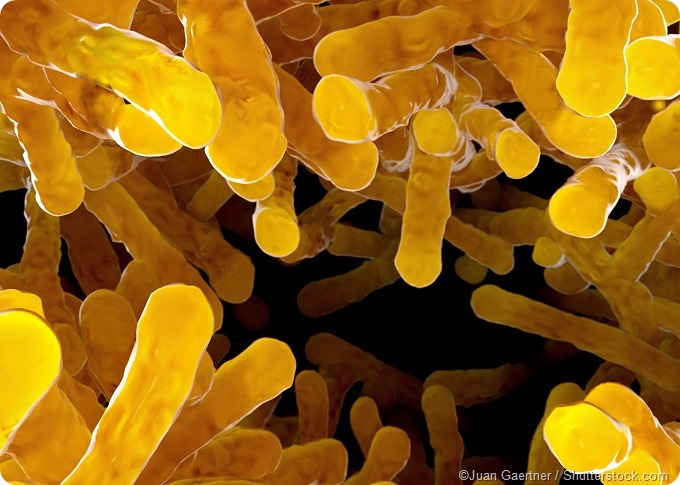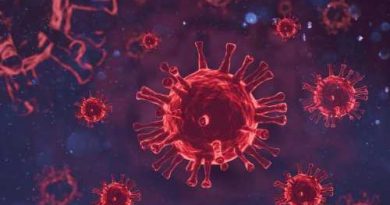Human Microbiome
The human microbiome refers to the spectrum of microbes (microbiota) that colonize humans. More specifically, it refers to the microbial genomes of all the bacteria, fungi, protozoa, and viruses that are found inside or on the body.

A bacterial colony, bacilli, 3d rendering.
Microbial cells far outnumber any other type of cell in the human body. Just the bacterial population alone is made up of around 200 trillion organisms, as compared with the 50 to 100 trillion cells that make up the somatic or body cell population.
The majority of the human microbiota are found in the gut and are mostly beneficial to humans. They aid digestion and the absorption of nutrients, they play a role in immune surveillance and protect against disease-causing bacteria by competing for their nutritional sources and by occupying their attachment sites. The human microbiota also produce B vitamins and vitamin K, which is required for hemocoagulation.
Pathogenic microbes
Many microbes in the human microbiota are pathogenic organisms such as the bacterial species Streptococcus, Staphylococcus, and Enterococccus. Dysfunction within the microbiome has also been associated with autoimmune conditions such as rheumatoid arthritis and fibromyalgia.
The accumulation of pathogenic microorganisms eventually alters genetic and metabolic processes, which causes an abnormal immune response to the presence of naturally occurring substances in the body. Research has shown that inherited autoimmune conditions are passed on through the microbiome rather than as a result of DNA inheritance.
The bacteria Clostridium difficile can be used as a good example of how the human microbiome is relevant to health and disease states. Infection with C. difficile usually happens after people receive treatment with antibiotics during a hospital stay.
Although the antibiotics do destroy pathogenic bacteria or inhibit their reproduction, they also disrupt the balance of normal microbial communities, meaning potentially harmful species may then take the place of previously established beneficial microbes.
Scientists have now found that C. difficile infection can be treated using fecal transplant, where the feces of a healthy person is transferred to the infected patient to replenish the level of gut microbiota that are beneficial.
Research into the human microbiome
Research into obesity has shown that, compared to individuals of a healthy weight, obese people have a greater abundance of the bacteria Prevotella and Firmicutes. The number of these microbes is also reduced in people who have undergone gastric bypasses surgery, compared with obese individuals who have not undergone the procedure.
Researchers suspect that these microbes are better at sequestering carbohydrates during the digestion process than the microbes that make up the gut flora in people of a healthy weight. These additional nutrients are subsequently stored as fat.
Continued research into the human microbiome is hoped to improve understanding of key elements in human physiology, especially nutrition, which could lead to the development of new guidelines for dietary habits and the food production process. The research could also lead to new diagnostic and therapeutic strategies in a number of human diseases and to the development of new approaches in industry.
Sources
- https://depts.washington.edu/ceeh/downloads/FF_Microbiome.pdf
- http://learn.genetics.utah.edu/content/microbiome/
- https://depts.washington.edu/ceeh/downloads/FF_Microbiome.pdf
- https://www.britannica.com/science/human-microbiome
Further Reading
- All The Microbiome Project Content
- The Human Microbiome Project (HMP)
- How Does the Diet Impact Microbiota?
- Achievements of the Human Microbiome Project
- Microbiome and Disease
Last Updated: Feb 26, 2019

Written by
Sally Robertson
Sally has a Bachelor's Degree in Biomedical Sciences (B.Sc.). She is a specialist in reviewing and summarising the latest findings across all areas of medicine covered in major, high-impact, world-leading international medical journals, international press conferences and bulletins from governmental agencies and regulatory bodies. At News-Medical, Sally generates daily news features, life science articles and interview coverage.
Source: Read Full Article



